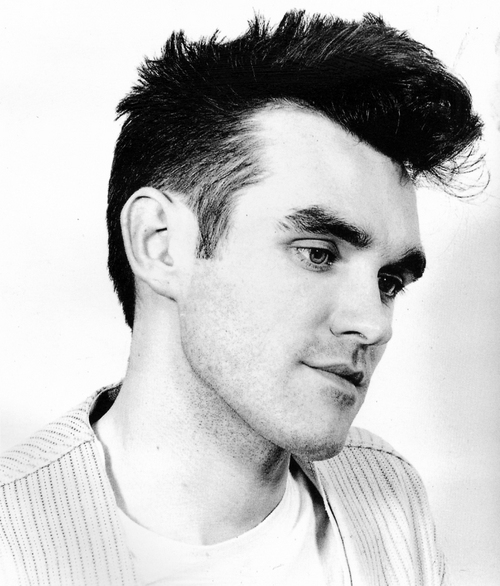
Last year Morrissey released his first book, an instant Penguin classic titled Autobiography. In a new Q&A on his website answering fan questions, the animal rights activist opens up about how music is dead, his literary ambitions and how we’re living in a world which is afraid of our self-acceptance.
On writing a novel: In 2013 I published my Autobiography and it has been more successful than any record I have ever released, so, yes, I am mid-way through my novel. I have my hopes. The actuality is that radio stations will not play my music, and the majority of people have lost faith in the music industry, and it’s generally assumed — quite rightly — that the number one chart positions are “bought” by the major labels, so there really is no passion left in pop or rock music, and I don’t think people believe for an instant that the faces we constantly see on television and in magazines are remotely popular. It’s all, now, solely a question of marketing. All success stories are safe and dreary, and you will never be taken by surprise by a hit song that sounds out of place. This is not just my view but the view of everyone I know.
On the challenges of being yourself: I think we all die feeling apologetic and embarrassed. I’m as much of a mess now as I was when I was 16. There are too many forces telling us we aren’t good enough — music critics, bank managers, the police, the judiciary, ex-wives . . . do you have the nerve to tell them all to get stuffed? That’s the only thing that will do it. The sociological arrangements of the western world rely exclusively on people NOT being their true selves. Otherwise, they couldn’t be governed and frightened and lost and timid — as most people unfortunately are. You can’t control people by telling them to be themselves. As soon as people decide to be themselves, the police reach for their stun guns, and governments roll out the tanks . . . Egypt, Bahrain, Thailand, Brazil, Ukraine, Syria . . . the very last thing we are encouraged to be is ourselves. This is why it’s always so shocking when someone stands up and gives an honest opinion. In all cases, such people are criticized by the print media, but never applauded.
On his greatest achievement: Many people have told me that they stopped eating flesh because of something I said. I can’t ask higher than that, and I wouldn’t aim for higher than that. If you believe in the abattoir then you would support Auschwitz. There’s no difference. People who would disagree with this statement have probably never been inside an abattoir.
 Why you can trust Xtra
Why you can trust Xtra


